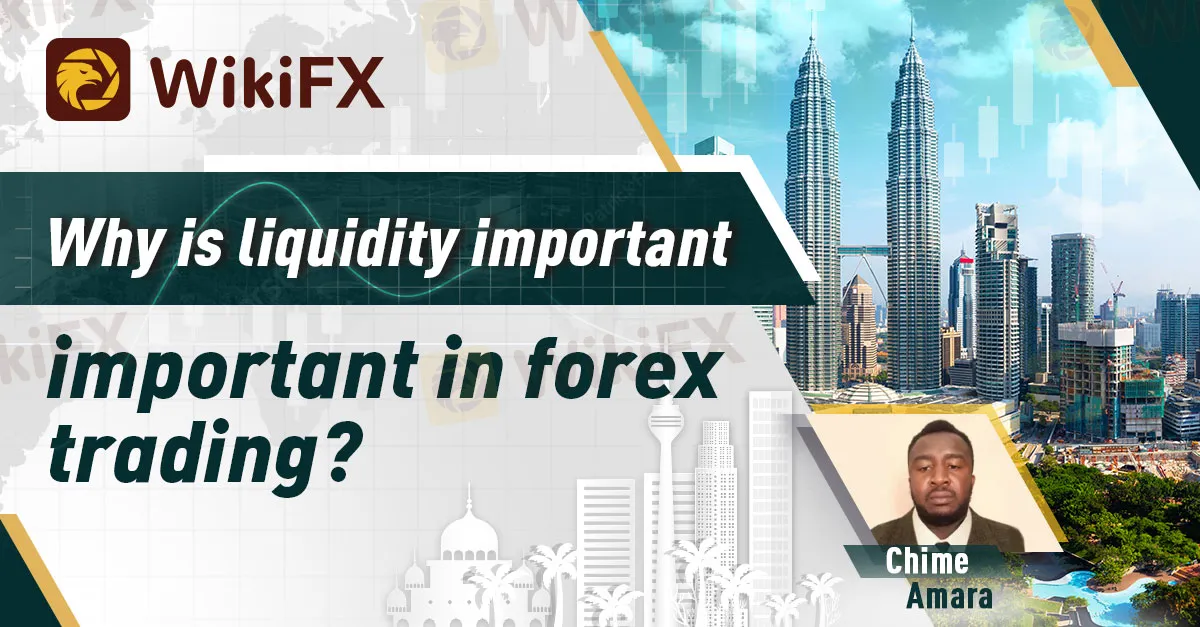Abstract:Liquidity in forex trading refers to the ease with which a given asset or currency can be bought or sold in the market without causing a significant change in its price. Without sufficient liquidity, it will be difficult to buy and sell different currencies at the market price.

By: Chime Amara

Major Reasons Why Liquidity is Important in forex trading
Price Stability
One of the key advantages of a liquid market is that it promotes price stability. When the market is liquid, there are many buyers and sellers, and this helps to prevent large price swings that can be caused by imbalances in supply and demand. This is particularly important in forex trading, where prices can be volatile and affected by a wide range of factors, including economic data, political events, and central bank policies. In a liquid market, traders can buy and sell currencies without having a significant impact on the market's overall price levels, reducing the risk of sudden price fluctuations.
Ease of Entering and Exiting Trades
Liquidity also makes it easier for traders to enter and exit positions quickly and at a fair price. When the market is liquid, there are always buyers and sellers, so traders can buy or sell currencies whenever they want. This is particularly important for day traders who need to be able to move in and out of positions quickly to take advantage of short-term price movements. In contrast, illiquid markets can make it difficult to find buyers or sellers, leading to wider bid-ask spreads and longer wait times to execute trades.
Lower Transaction Costs
Liquidity can also help to lower transaction costs. When the market is liquid, the bid-ask spread tends to be tighter, meaning that the difference between the buying and selling prices is smaller. This can help to reduce the cost of entering and exiting positions. In contrast, in illiquid markets, bid-ask spreads tend to be wider, reflecting the greater difficulty of finding buyers or sellers. This can increase the cost of trading, particularly for larger positions.
Improved Market Efficiency
A liquid market also helps to promote market efficiency. When there are many buyers and sellers in the market, prices tend to reflect all available information about the underlying assets, including economic data, news events, and market sentiment. This means that prices are more likely to be fair and accurate, and less likely to be influenced by individual traders or market participants. This is particularly important in forex trading, where prices can be affected by a wide range of factors, and where accurate pricing information is essential for making informed trading decisions.
Conclusion
Liquidity plays a crucial role in trading forex. A liquid market promotes price stability, ease of entering and exiting trades, lower transaction costs, and improved market efficiency. When the market is liquid, traders can buy and sell currencies quickly and at a fair price, reducing the risk of sudden price fluctuations and enabling them to take advantage of short-term price movements.











